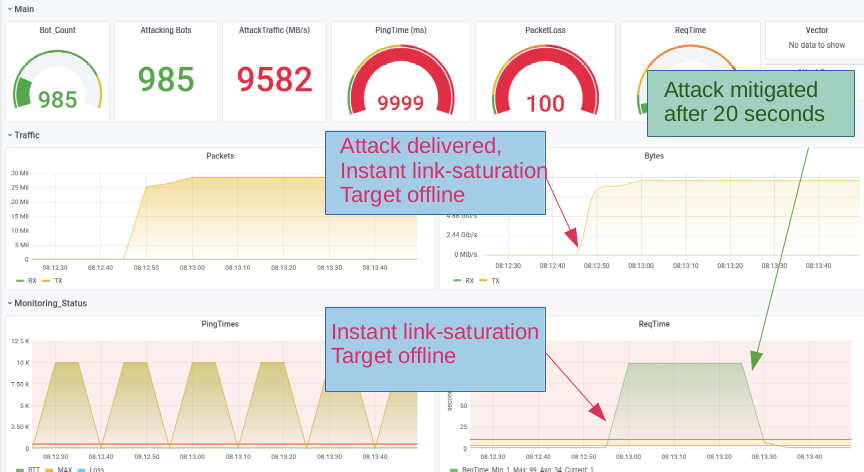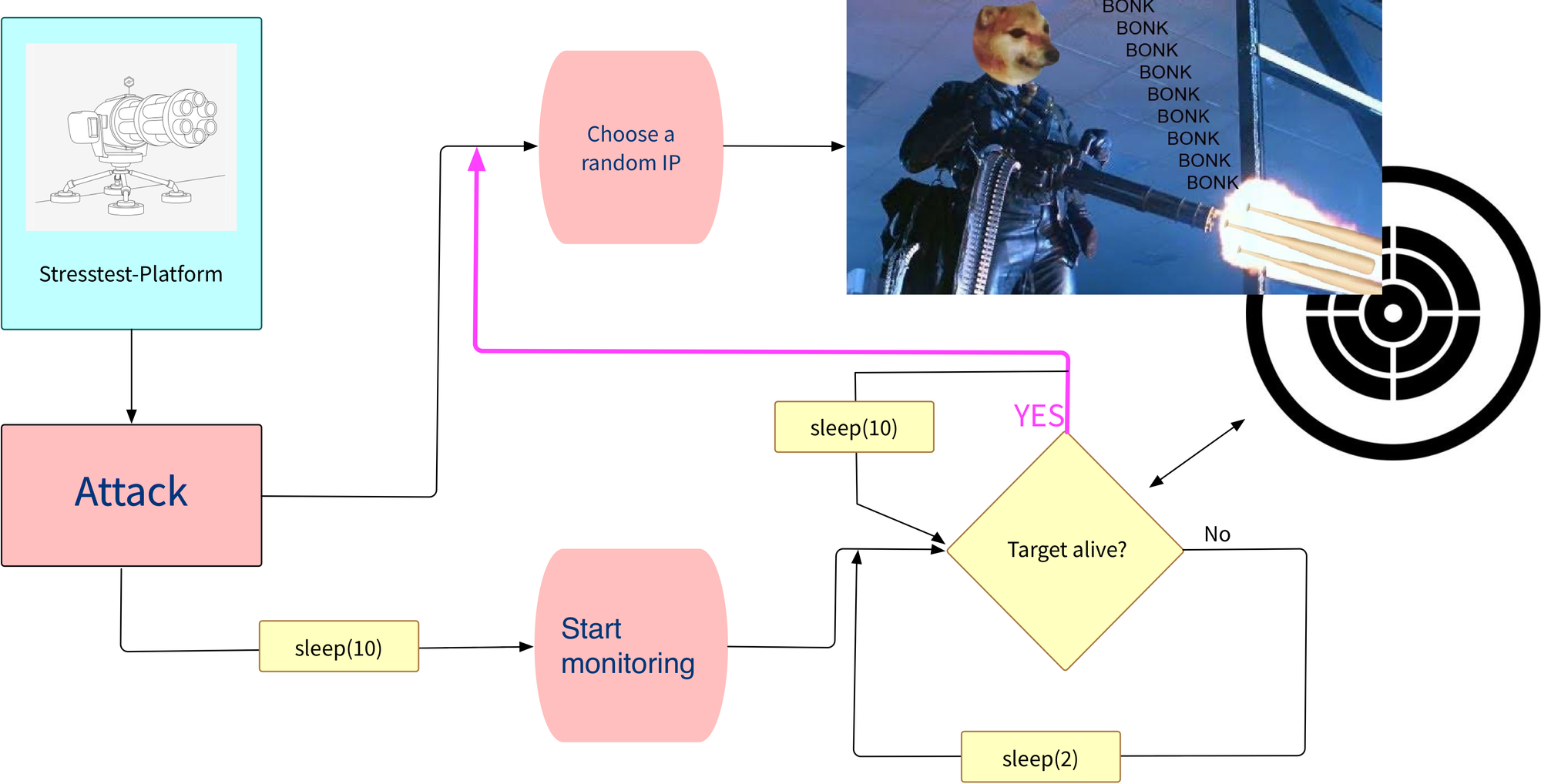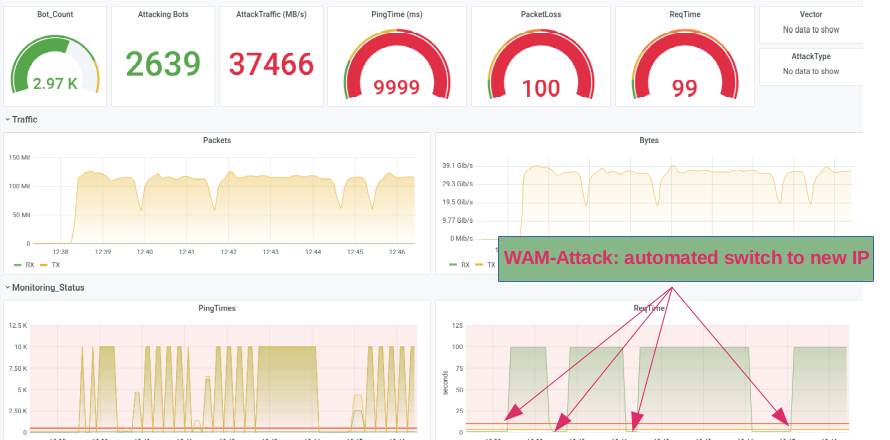STATUS: open
embargo lifted 2023-06-20
During our DDoS-Assessments we see a lot of different behaviors on attacked systems/protections; some react without any delay, some have a short gap of 10-60 seconds when attacking an IP with enough volume to saturate the uplink.
In the screenshot below you see this behavior during a THOR-attack ( see this german article on that specific attackmode).
10 GB/s hits a 1 GB connection, protected by a hybrid anti-ddos-solution with an appliance for detection/bgp-rerouting and a scrubbingcenter that washes the attacking traffic successfully after 15 seconds.

This behavior might be sufficiant for most cases as a protection against usual botnet attacks where a short hickup might get mostly unnotized.
We tested this delay-behavior and found out
- if we changed the attacking methds/vectors like TCP<->UDP, changed ports and payloads, but kept the attacked IP the same, no delay was discovered
- if we change the attacked IP, then again we have this delay in protection, varying from 10 - 60 seconds on this particular test, but we have seen up to 180 seconds with other clients and setups
But ...

Having carpetbombing in mind and also available as testmethod, a new attack came into mind: not attacking all IPs, lets say from a /24 simultaneously (parallel), but one after another (serial), always selecting a new random IP after the mitigation kicks in.
The workflow for the attack is as follows:
10select a CIDR to attack; /27/26 might be sufficient, but the bigger, the better20select a random IP from this CIDR, attack30wait for the target to be unreachable, start monitoring (see sleep(10) in the chart)40wait for the mitigation to kick in50if monitoring detects the target is back online- GOTO
20

For a given /24, his method would give a significant downtime. Lets say we have a mitigation-delay of 30 seconds for each attacked IP we'd have a downtime of 2hrs+ (naive approach)

Initial Release: Oktober 2021, under embargo
Embargo Until: Jun 2023

Member discussion: